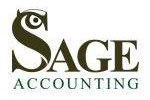Scottish Budget confirms 2022/23 income tax rates
The devolved Scottish parliament sets its own income tax rates and thresholds. In the latest Scottish Budget, the rates for the next tax year were announced. What’s the position for Scottish taxpayers?

Where an individual is a Scottish taxpayer in a particular tax year, they are subject to the Scottish Rates of Income Tax (SRIT). These are designated by Holyrood each year. The overall position can be confusing, as SRIT only applies to earnings, self-employment profits, rental income and pension income - the main UK rates continue to apply to other income, such as dividends. Additionally, the NI bands remain aligned with the UK.
The 2021 Scottish Budget confirmed that the starter and basic rate bands will increase with inflation for 2022/23, but that the higher bands will remain frozen. This means that for 2022/23, the SRIT will be as follows:
- 19% on earnings between £12,571 to £14,667
- 20% between £14,668 to £25,296
- 21% on the chunk between £25,297 to £43,662
- 41% on income between £43,663 to £150,000
- 46% on earnings above £150,000.
Related Topics
-
Directors’ fees - can you escape PAYE?
You’ve been asked to join the board of a company in a purely advisory role. For tax and NI efficiency you want your fees to be paid to your own company. Does this arrangement fall foul of HMRC’s off-payroll rules?
-
P46 (car) deadline
-
Filing deadline for self-assessment tax returns

 This website uses both its own and third-party cookies to analyze our services and navigation on our website in order to improve its contents (analytical purposes: measure visits and sources of web traffic). The legal basis is the consent of the user, except in the case of basic cookies, which are essential to navigate this website.
This website uses both its own and third-party cookies to analyze our services and navigation on our website in order to improve its contents (analytical purposes: measure visits and sources of web traffic). The legal basis is the consent of the user, except in the case of basic cookies, which are essential to navigate this website.